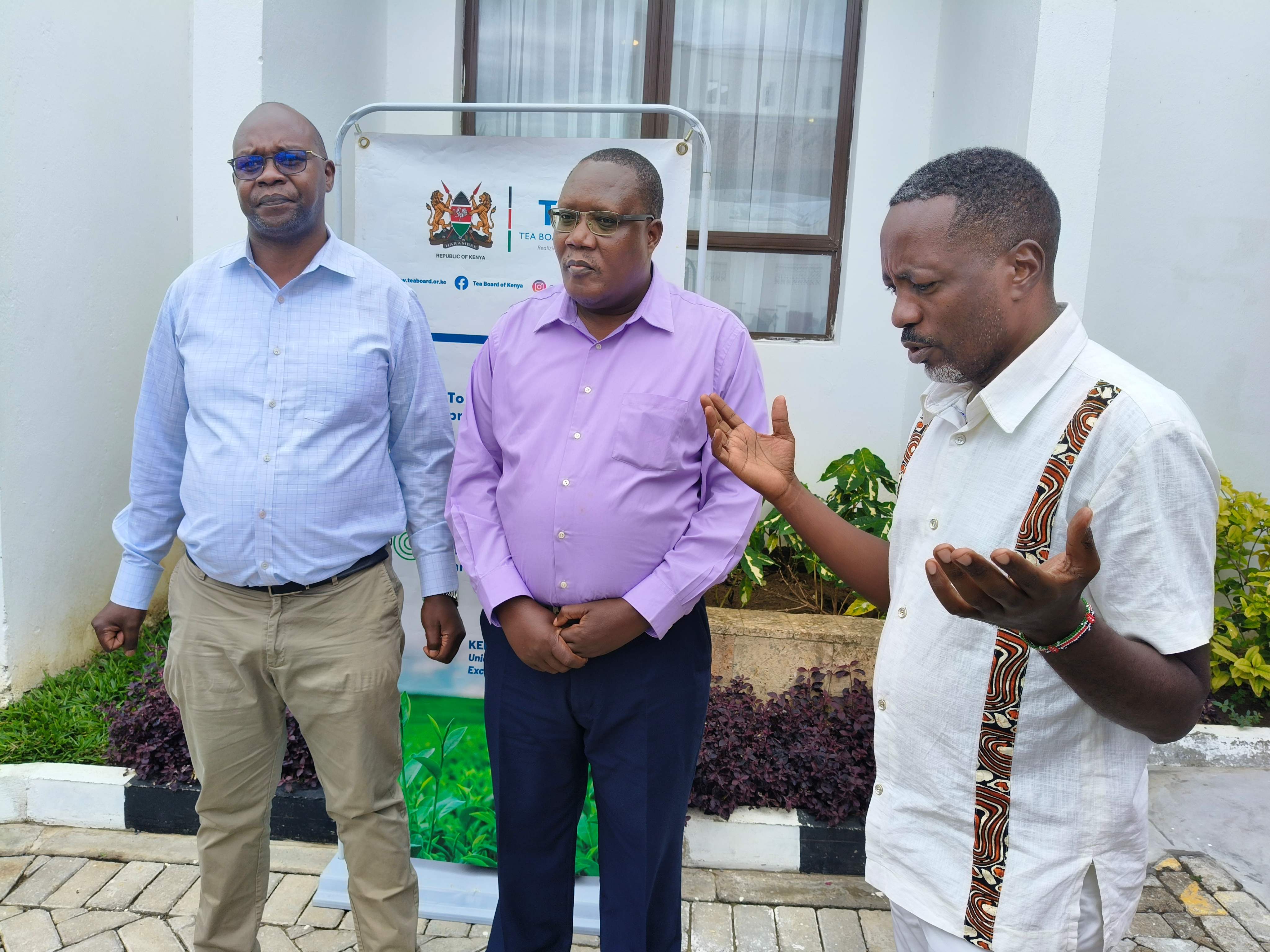

TBK CEO Willy Mutai, EATTA MD George Muga and Enoch
Matte in Mombasa on Friday / BRIAN OTIENO
The Tea Board of Kenya and the East African Tea
Trade Association have urged farmers to work on the
quality of tea to improve prices.
TBK CEO Willy Mutai
and Eatta managing director George Omuga also urged Kenyans to consume more tea.
The two said the bulk of Kenyan tea is exported as
raw materials, without value addition, exporting jobs in the process.
Omuga said only five per cent of the
locally produced tea is consumed in Kenya.
He said changing tastes and preferences affect the prices of
tea and Kenya might lose its market.
Last year, Kenya,
the largest exporter of tea in the world, produced 598 million kg of tea and
consumed only 29.9 million kg.
“We want to appeal
to Kenyans, please support tea and stop drinking the other beverages. I don’t want
to mention what they are,” Omuga said.
He said exportation
of 95 per cent of bulk tea, especially without value addition, is akin to exporting
raw materials and local jobs to other countries.
“Then they will add
value and some of those teas come back to be sold in Kenya,” Omuga said.
Some 210 samples of
prime grades were analysed last week during the session, giving impressive
results.
The government waived import excise duty for packaging materials and removed the value added tax for locally consumed tea. This means currently, the teas bought and packaged
locally is zero-rated, to spur local consumption and not over-rely on the
export market.
“We are encouraging
Kenya to bring the Dubai Multi Commodities Centre (DMCC) here – the largest tea exporter in the world,” Omuga said.
The DMCC is a
commodities exchange and free-trade zone in the United Arab Emirates. It is the
world’s leading business hub and an international centre for trade, commerce
and innovation.
“We have the technical
expertise. We just need to create a conducive investment environment for value
addition,” Omuga said.
Mutai said although
quality attracts good prices, all players must do their part.
“Farmers have
really pushed up the quality. We are however still urging them to tighten the
gaps. The gaps are all the issues that are giving them challenges, including the
manufacturing side,” he said.
The CEO said there is
need to go back to the factories to make them understand that tea sells based
on the leaf appearance.
Omuga said the
Mombasa tea auction, which is run by Eatta, sells tea from 10 African
countries, meaning there is competition in quality, which is one of the critical
factors that determine the prices.
The 10 countries
include Kenya, Uganda, Rwanda, Burundi, Tanzania, Mozambique, DRC, Malawi,
Madagascar and Ethiopia.
Judges nominated
from across the tea value chain were for three days involved in blind tea
tasting in Mombasa through sensory evaluation
“The results are
out and it is evident that the quality of raw materials from the farm has a
direct influence on the carb quality and other tea parameters,” Omuga said.
He said apart from
the tea quality, tea prices are affected by the economic factors of the importing
country, and the geopolitical factors of the importing countries.
“So when they are not stable, like currently the Middle East is not stable, we have issues with the Red Sea, the war in Russia and Ukraine, directly affect the tea prices at the Mombasa auction,” the EATTA MD said.















